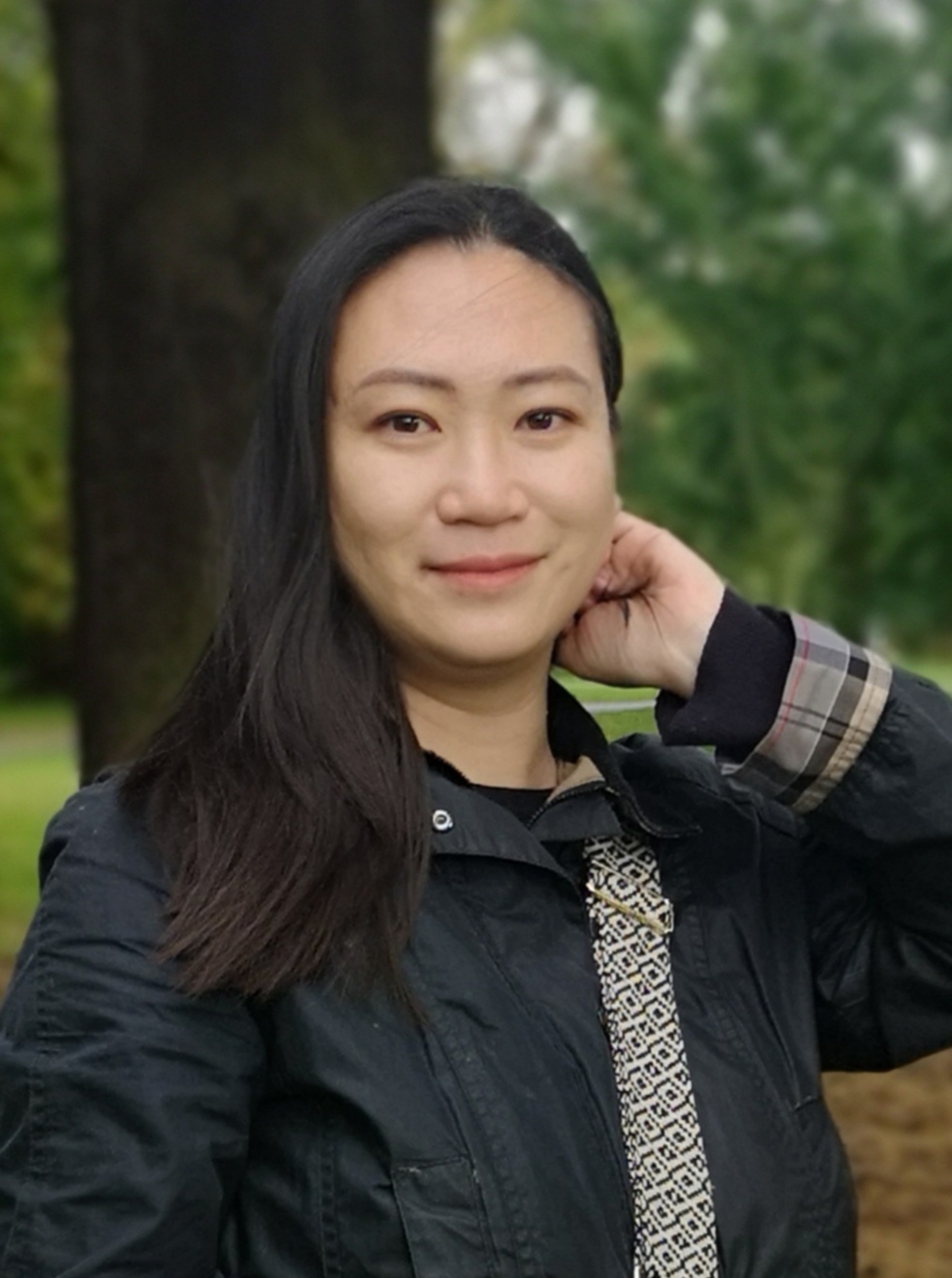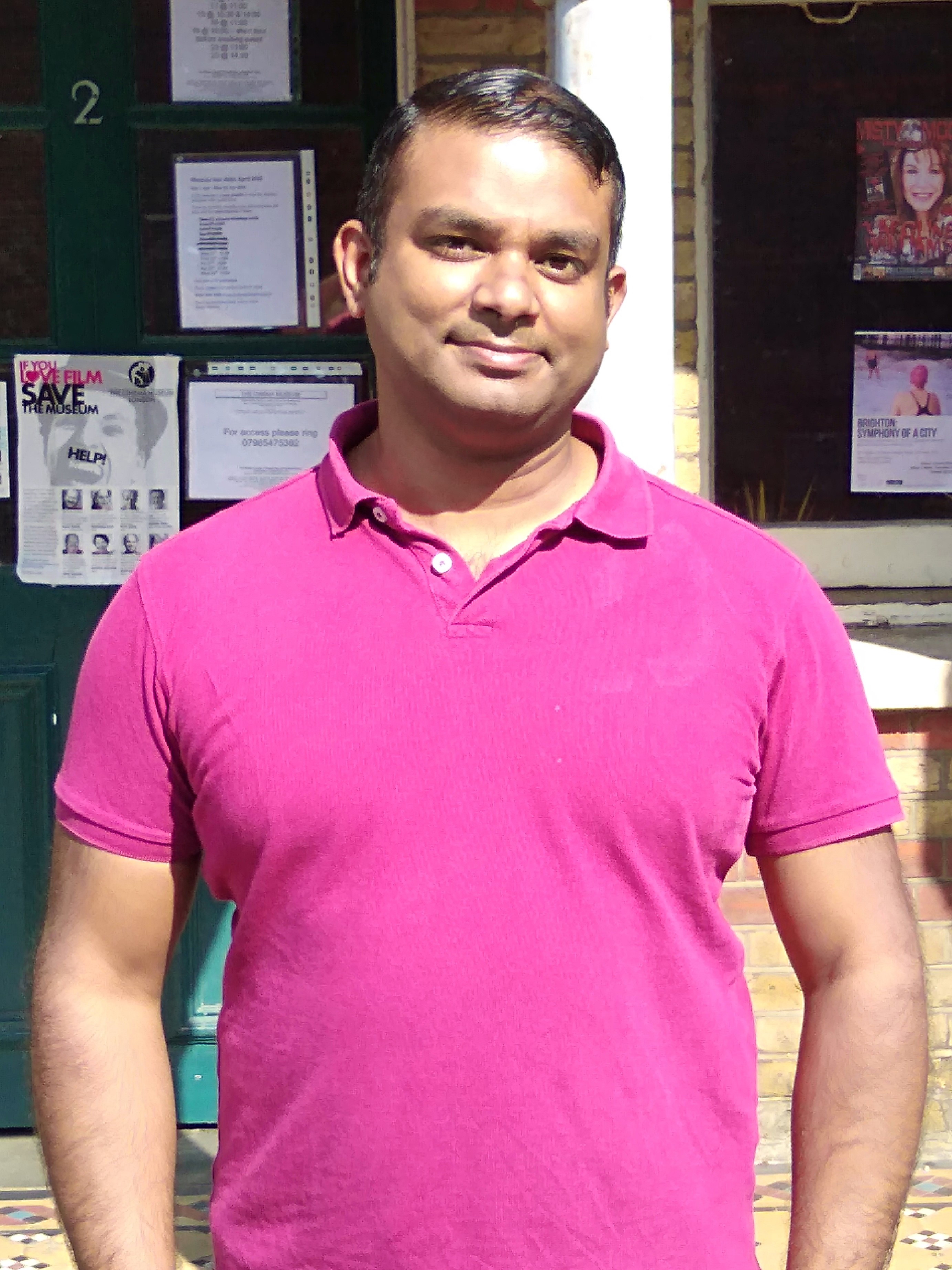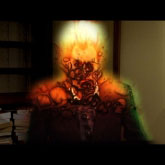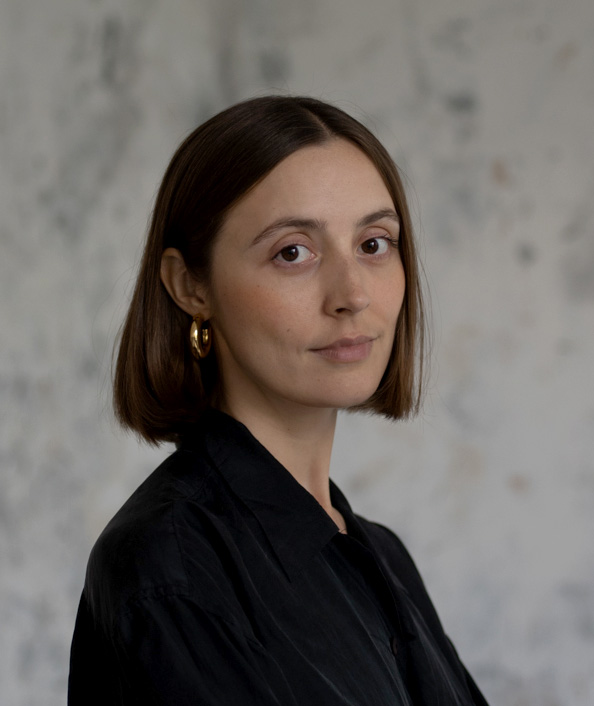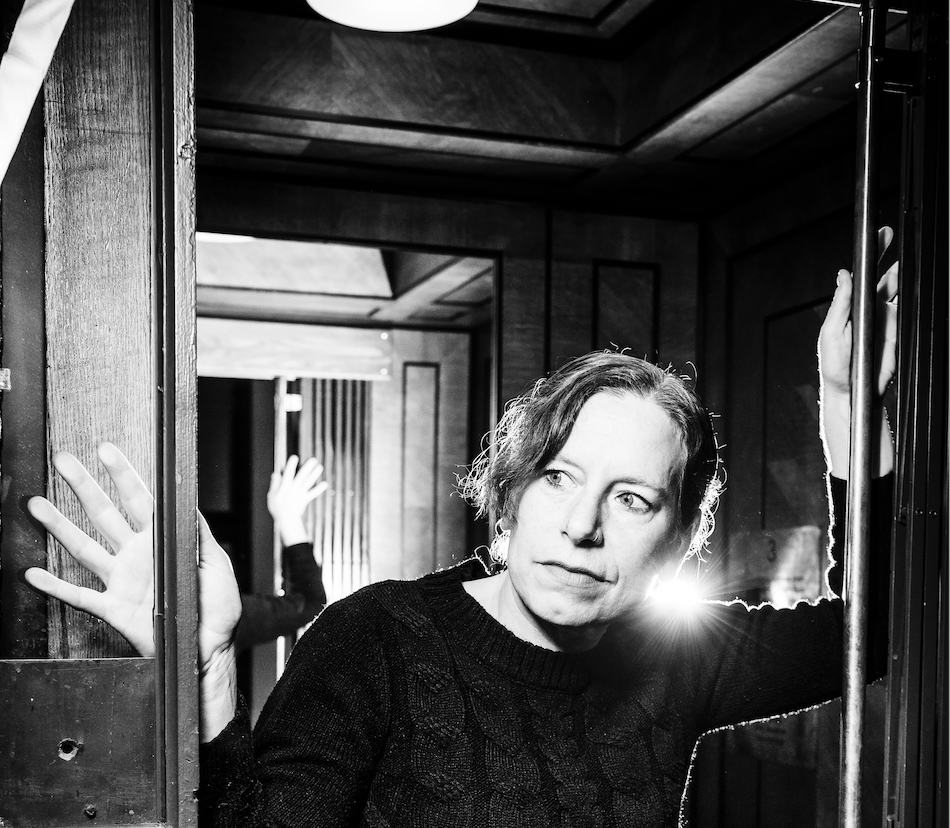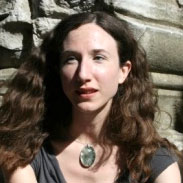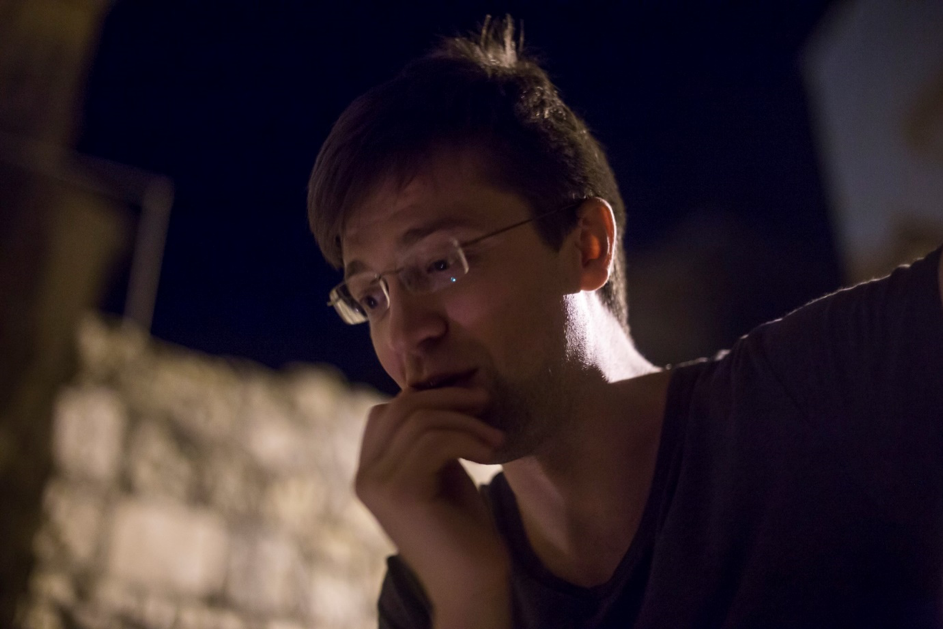Study options
- Starting in
- September 2025
- Location
- Mile End
- Fees
- Home: £6,150
Overseas: £12,750
EU/EEA/Swiss students
The course fee is charged per annum for 2 years. Note that fees may be subject to an increase on an annual basis - see details on our tuition fees page.
What you'll study
Our MA Film includes three different pathways for you to choose from:
The MA Film (Theory) pathway offers you the opportunity to explore key aspects of film analysis, theory, history and practice.
Through a range of different approaches to the study of film, including genre and textual analysis, audience studies, and media archaeology, you will be exposed to some of the most pressing debates about film today. Questions of ethics and whether we can consider film as a document; of how film works on our bodies as an affective medium; the reasons for film's close affinity to urban, cosmopolitan and diasporic cultures; and the historical legacy of film as an international, and now transnational medium, are all central to the programme. In exploring these questions, you will be introduced to some of the liveliest and most important chapters in the history of cinema.
The MA Film (Documentary Practice) pathway investigates, articulates, questions and challenges issues of individual, social, political and ideological importance.
This pathway utilises documentary production as a professional creative skill and as a practice-based research tool to create sophisticated, intellectual and critical enquiry. The programme involves critical enquiry and research into documentary production and also includes creative production work to a professional standard.
The MA Film (Directing Fiction) pathway trains you in the technical, theoretical, creative and aesthetic skills necessary to direct fiction film, and helps you find your own voice and vision as a director.
The programme consists of an innovative combination of technical training, suitable for those completely new to filmmaking and those wanting to further their craft, mentoring in the production of a number of short films written and directed by the students, and historical and theoretical teaching.
Please note: the award title on your degree transcript will depend on the pathway chosen: MA Film (Theory) OR MA Film (Documentary Practice) OR MA Film (Directing Fiction).
For students wishing to discuss their pathway option in more detail prior to applying, please contact sta@qmul.ac.uk.
Additional costs
You may be required to pay for your own transport on your visit to a museum or gallery.
Structure
MA Film (Theory) pathway - Full-time students:
- Two compulsory credit modules (one in each semester);
- Several elective modules;
- Dissertation or Final Project.
MA Film (Documentary Practice) pathway - Full-time students:
- Two compulsory credit modules (one in each semester);
- Several elective modules;
- Final project.
MA Film (Directing Fiction) pathway - Full-time students:
- Two compulsory credit modules (one in each semester);
- Several elective modules;
- Final project.
If you have enquiries regarding the part-time options for this programme, please email sta@qmul.ac.uk.
Compulsory/Core modules
Film (Directing Fiction) Compulsory/Core modules
Launching in semester two of your programme and running the course of the summer, the Final Project module guides you to deepen your research skills and realise an ambitious, high-production, festivals-ready documentary film drawing on the methods and modes given attention to over the duration of the MA. The documentary film production is supported by a research portfolio and an academic essay in giving detailed and theoretically informed context to the topic and the form of the film produced.
Over the course of 12 weeks, this module requires students to form small production groups to develop and produce a festival-ready short film. Each week they are asked to create presentations that show a different stage in the production process. Taking them from development, through to the finished film. They learn the importance of research and process. The module is broken up between whole class lectures, student presentations and a series of small group meetings with the tutor to facilitate their journey.
This module offers students the opportunity to apply their theoretical knowledge of film studies, in particular auteur theory, and consider this understanding through critical practice; where practical work is used to demonstrate, test and develop theoretical understanding in film. Students enrolled on the module will initially prepare an academic presentation setting out the features which characterize the director as an auteur, especially in relation to directing technique, and this will form the basis for a short production by the student which demonstrates or tests aspects of these features of authorship. Each student will shoot and edit their production with the co-operative support of their colleagues. The completed production and an essay will be submitted for assessment. The essay will be based on the research prepared for the presentation and discuss the completed production in an appropriate theoretical context. Students are not expected to have practical skills in production before starting this co
Film (Documentary Practice) Compulsory/Core modules
Launching in semester two of your programme and running the course of the summer, the Final Project module guides you to deepen your research skills and realise an ambitious, high-production, festivals-ready documentary film drawing on the methods and modes given attention to over the duration of the MA. The documentary film production is supported by a research portfolio and an academic essay in giving detailed and theoretically informed context to the topic and the form of the film produced.
Documentary in its simplest of forms is a recording of an act. The film camera is first and foremost a recording instrument, whether it captures 'life caught unawares' or a fictional scenario. This module examines the history of 'non-fiction' filmmaking in the 20th and 21 st century through the understanding of documentary styles and genre. Political, social, ethical and historical issues will be addressed through the engagement of theory and practice.
This module challenges some of the key tenets and ideas of documentary film (such as transparency, truth, reality, and representational practices) with a view to pushing the boundaries of the documentary form. We will explore different modes of documentary practice, including the performative documentary, artists' moving image documentary in the gallery, the animated documentary, archival and found footage film and the essay film. These non-traditional modalities of nonfiction are designed to enhance and reconfigure your own documentary practices, and enable you to test out new theoretical, aesthetic and rhetorical strategies in your production work. To make the most of the module, you are encouraged to read extensively around documentary film theory and practice, thinking through the myriad formal, political and ethical ways the moving image encounters and represents the lived world. To broaden your horizons, please make sure to keep abreast of the extra-curricular suggestions for recommended viewing, and make the most of the artistic, cinematic, and socially engaged events Queen Mary University and the many communities of London have to offer. Please check your email and social media daily for updates. Sessions will commonly be divided into two parts. In the first part, there will be a screening covering a particular mode of documentary film that challenges traditional approaches to documentary filmmaking, followed by a lecture and discussion of the film and the assigned reading material. The second part of the session will focus on the practical aspects of planning the production of your film - from concept to completion.
Film (Theory) Compulsory/Core modules
The first part of the Film Studies course provides an in-depth foundation in the discipline and its nuances. It examines the many ways in which a century of cinema has shaped our experience of space, time and reality. We analyse the spatio-temporal world of the film as a language organized through shot composition, mise-en-scene, art direction, production design, editing, sound, on screen and off screen space, deployed to dfferent effect across film forms and national contexts. Of all the modern arts, it is perhaps film that has been the most concerned with the many qualities of time. Central to the temporality of film are critical issues of whether film constructs or reveals the world, conveys or distorts 'real time', emancipates alternative identities, acts as interpretive interface between life and death, and whether idneed it suggsts or condemns the possibility of a shared collective time. We then consider various perspectives on film's relationship with the world through ethics, actuality, nonfiction filmmaking and iconic images.
The second part of the Film Studies course continues to delve into some of the most pressing and current questions of the discipline, while also being accessible to students who did not take the first part. We begin by looking at alternative filmic practices, from structural film¿s exploration of the elements of the medium to contemporary amateur practices. Cinema possesses the potential to deploy strategies to break binary representations: mainstream and marginal, human and non-human, self and other, dominant and dispossessed. We therefore look at the relationship of film and the nonhuman, explored through problematizing the notion of `landscape¿, iconic images of the nonhuman, and film¿s relationship with animals through the notion of vegan cinema. Approaching film as a recording device arguably foregrounds the ethical dimensions of the medium if it is thought of as type of witnessing. Finally, we consider the way cinema is shaped by as well as shapes history, moves through transnational spaces as well as becomes embedded in certain national contexts, and engage in decolonial perspectives on cinema.
Film (Theory) Compulsory/Core Elective modules
Launching in semester two of your programme and running the course of the summer, the Final Project module guides you to deepen your research skills and realise an ambitious, high-production, festivals-ready documentary film drawing on the methods and modes given attention to over the duration of the MA. The documentary film production is supported by a research portfolio and an academic essay in giving detailed and theoretically informed context to the topic and the form of the film produced.
Dissertation
Elective modules
Please note: the elective modules available will be dependent on the pathway chosen. If you would like to speak in more detail with the programme convenors about the modules, please email sta@qmul.ac.uk.
Assessment
By undertaking the MA in Film, you can usually expect the following assessment types:
- Essays
- Practical production work
- Project Work and Project Reports
- Dissertation (either a 12,000 dissertation on chosen topic or a 20 minute film with a 5000 word essay and an accompanying portfolio).
Dissertation
Previous dissertation subjects within the department have included:
- How historical film can represent the occupation of Guernsey
- Ecstatic truth – the sublime in the works of Werner Herzog
- Michelangelo Antonioni: what are the key aspects of his cinema?
- Of Unsound (Fil)mind: Filmosophy, Nannu Moretti and the Psychoanalytical Self
- Spirits, Modern Monsters and Saving the World: Re-defining Traditional Japanese Culture in Millennial Anime Film
- The Fleshy Folds of Leviathan: A Phenomenological Account of Becoming-Animal
Teaching
You'll attend a fascinating series of lectures, screenings and seminars which will be combined with independent production work.
You'll also take an active role in your own learning through independent study, reading and writing assignments.
We want you to get the best from your studies, so you'll be paired with your own Academic Adviser, who'll support you academically and pastorally along the way.
Where you'll learn
Facilities
- Bespoke 41-seat cinema and state-of-the-art black box film studio facilities
- Up-to-date camera and post-production technology and equipment, supported by experienced staff
- Queen Mary’s comprehensive libraries, including our Postgraduate Reading Room
- Our new Graduate Centre: purpose-built study spaces and a roof-top common room with a terrace
Campus
Our Mile End campus is ideal a for east London’s vibrant film and arts culture. Our Department has links with the London Film Festival, BFI, Open City Docs, Visible Evidence, Film-Philosophy conference, East London Film Festival and Doc House.
London has a thriving film and cinema culture with a number of international film festivals, a wide range of independent cinemas and numerous film clubs. The production and post-production houses of Soho are a short tube journey away and a number of internationally important film studios, such as Pinewood, are easily accessible.
About the School
School of the Arts
The School of the Arts combines innovation, discovery and excellence in education and research in Drama, Film, Modern Languages, English & Comparative Literature, Creative Writing, Linguistics and Liberal Arts. We rank in the top 100 worldwide for Arts and Humanities (QS World University Rankings by Subject 2024)
With our commitment to social justice, inclusivity and social mobility, our collaborations with external organisations, prominent writers and performers, and our facilities that support both academic and practice-based learning, an education in the School of the Arts equips our students with critical thinking and practical skills, unleashes their imagination and enables them to reach the levels of excellence needed in today’s industries.
We regularly host prominent writers and performers and collaborate with leading organisations such as the V&A, the Barbican, the Live Art Development Agency and Shakespeare’s Globe.
We are renowned for the depth and impact of research - which leads our teaching. We rank 1st for drama and in the top 10 for film in the UK for the quality of our research (REF2021). Our multilingual community brings together brilliant minds from across the world to share a wealth of expertise combining research excellence with an unrivalled commitment to social justice and social mobility.
—London is probably the best place to be a film student. You have access to the BFI Reuben Library, the London Film Festival every October, countless other festivals throughout the year.
Rosemary Koper, MA FilmMA Film Studies (2016)
Career paths
The Department of Film provides great opportunities for you to develop the skills and attributes you need to progress successfully in your chosen career.
Both Documentary Practice and Directing Fiction pathways provide graduates with a roster of festival ready films, and the skills to pursue independent filmmaking or work in the industry. All three pathways equip you with skills and knowledge to pursue a range of careers in film and broadcasting, as well as continuing on to PhD study.
Find out more about our alumni on our website.
Fees and funding
Part-time
September 2025 | 2 years
- Home: £6,150
- Overseas: £12,750
EU/EEA/Swiss students
Unconditional deposit
Home: Not applicable
Overseas: £2000
Information about deposits
Full-time
September 2025 | 1 year
- Home: £12,250
- Overseas: £25,500
EU/EEA/Swiss students
Unconditional deposit
Home: Not applicable
Overseas: £2000
Information about deposits
Full-time
September 2025 | 1 year
- Home: £12,250
- Overseas: £25,500
EU/EEA/Swiss students
Unconditional deposit
Home: Not applicable
Overseas: £2000
Information about deposits
Full-time
September 2025 | 1 year
- Home: £12,250
- Overseas: £25,500
EU/EEA/Swiss students
Unconditional deposit
Home: Not applicable
Overseas: £2000
Information about deposits
Full-time
September 2025 | 1 year
- Home: £12,250
- Overseas: £25,500
EU/EEA/Swiss students
Unconditional deposit
Home: Not applicable
Overseas: £2000
Information about deposits
Part-time
September 2025 | 2 years
- Home: £6,150
- Overseas: £12,750
EU/EEA/Swiss students
Unconditional deposit
Home: Not applicable
Overseas: £2000
Information about deposits
Full-time
September 2025 | 1 year
- Home: £12,250
- Overseas: £25,500
EU/EEA/Swiss students
Unconditional deposit
Home: Not applicable
Overseas: £2000
Information about deposits
Full-time
September 2025 | 1 year
- Home: £12,250
- Overseas: £25,500
EU/EEA/Swiss students
Unconditional deposit
Home: Not applicable
Overseas: £2000
Information about deposits
Part-time
September 2025 | 2 years
- Home: £6,150
- Overseas: £12,750
EU/EEA/Swiss students
Unconditional deposit
Home: Not applicable
Overseas: £2000
Information about deposits
Queen Mary alumni can get a £1000, 10% or 20% discount on their fees depending on the programme of study. Find out more about the Alumni Loyalty Award
Funding
There are a number of ways you can fund your postgraduate degree.
- Scholarships and bursaries
- Postgraduate loans (UK students)
- Country-specific scholarships for international students
Our Advice and Counselling service offers specialist support on financial issues, which you can access as soon as you apply for a place at Queen Mary. Before you apply, you can access our funding guides and advice on managing your money:
Entry requirements
UK
Degree requirements
A 2:1 or above at undergraduate level in any arts, social sciences and humanities degrees. Other non-related degrees will be considered on an individual basis.
Other routes
Candidates who do not currently meet the set entry requirements may also have the option to study the Graduate Diploma in Humanities and Social Sciences. Meeting the required grades on completion of this programme will provide a pathway to study MA Film.
Find out more about how to apply for our postgraduate taught courses.
International
English language requirements
The English language requirements for our programmes are indicated by English bands, and therefore the specific test and score acceptable is based on the band assigned to the academic department within which your chosen course of study is administered. Note that for some academic departments there are programmes with non-standard English language requirements.
The English Language requirements for entry to postgraduate taught and research programmes in the School of the Arts fall within the following English band:
Band 5: IELTS (Academic) minimum score 7.0 overall with 6.0 in each of Writing, Listening, Reading and Speaking
We accept a range of English tests and qualifications categorised in our English bands for you to demonstrate your level of English Language proficiency. See all accepted English tests that we deem equivalent to these IELTS scores.
Visas and immigration
Find out how to apply for a student visa.

